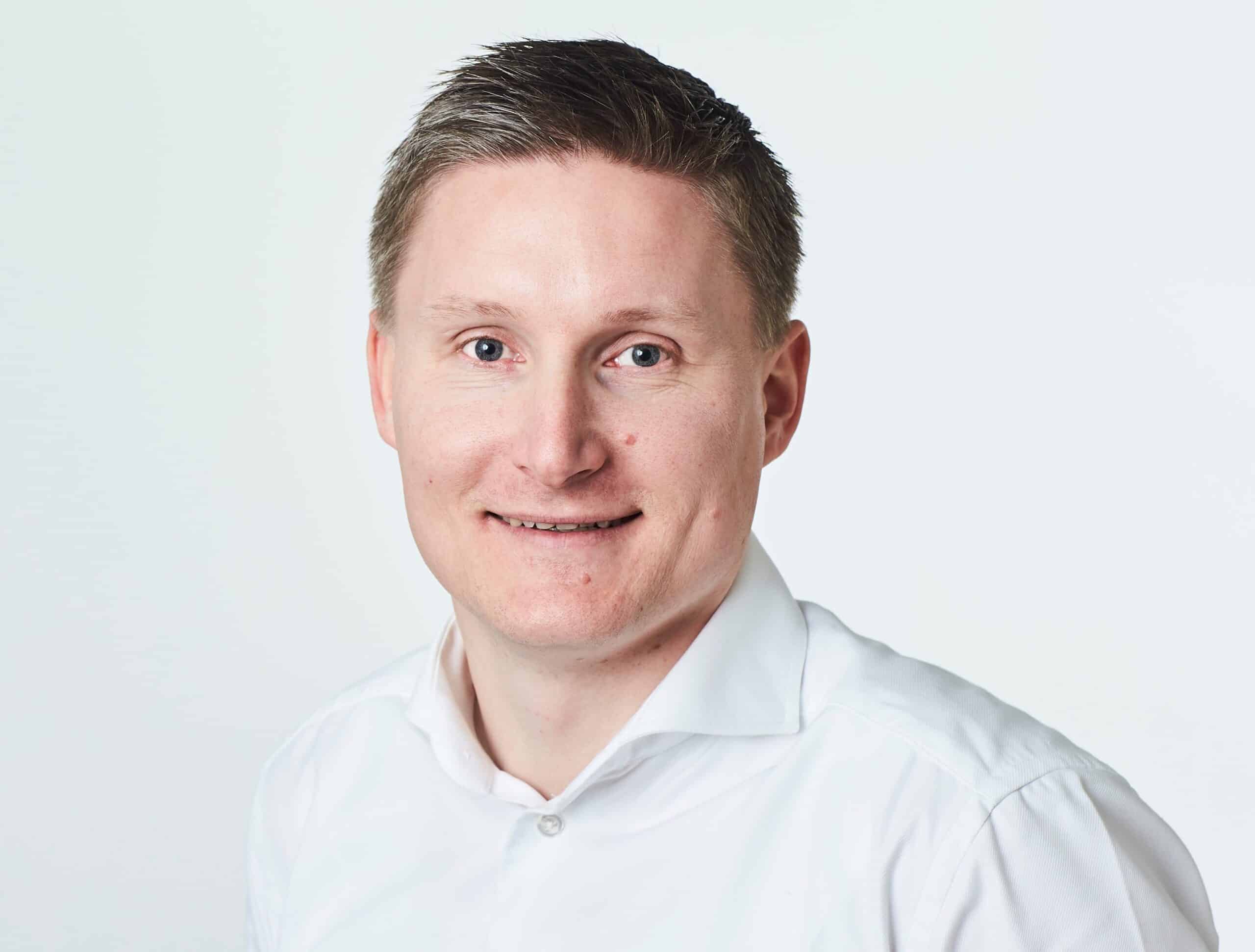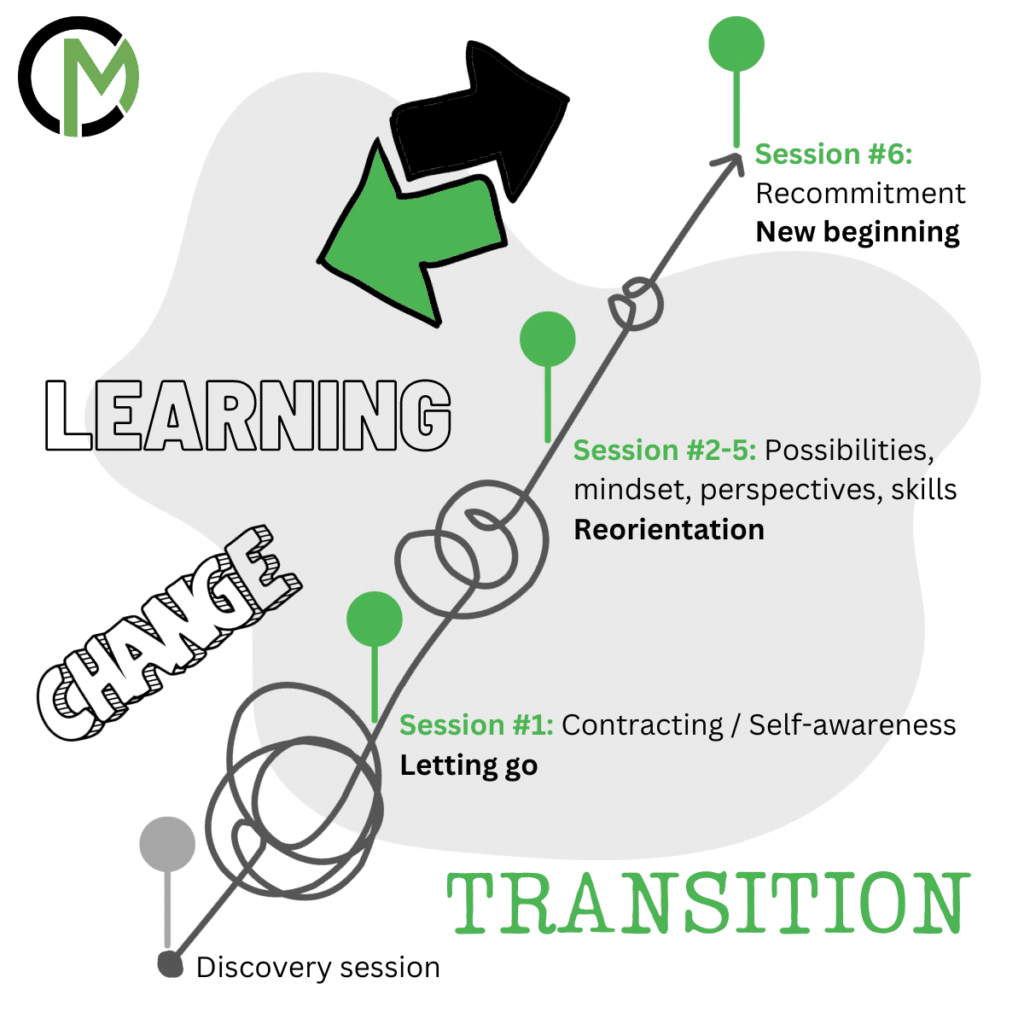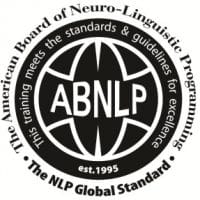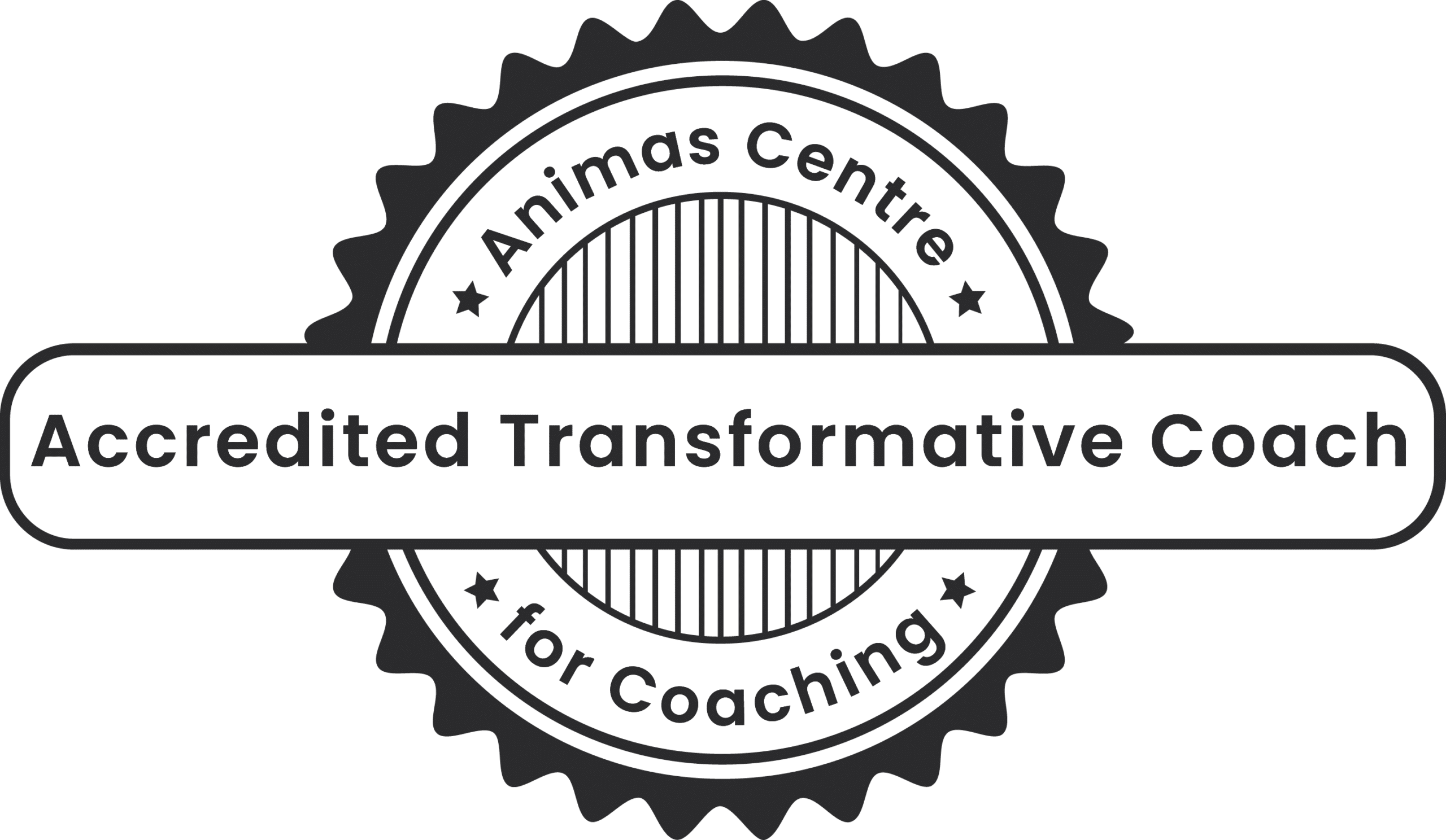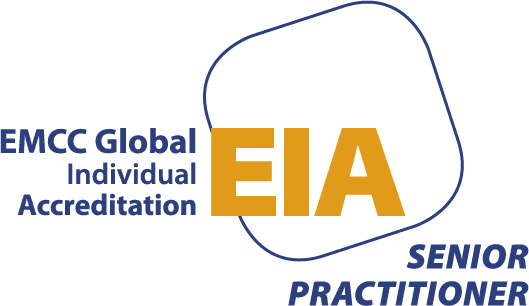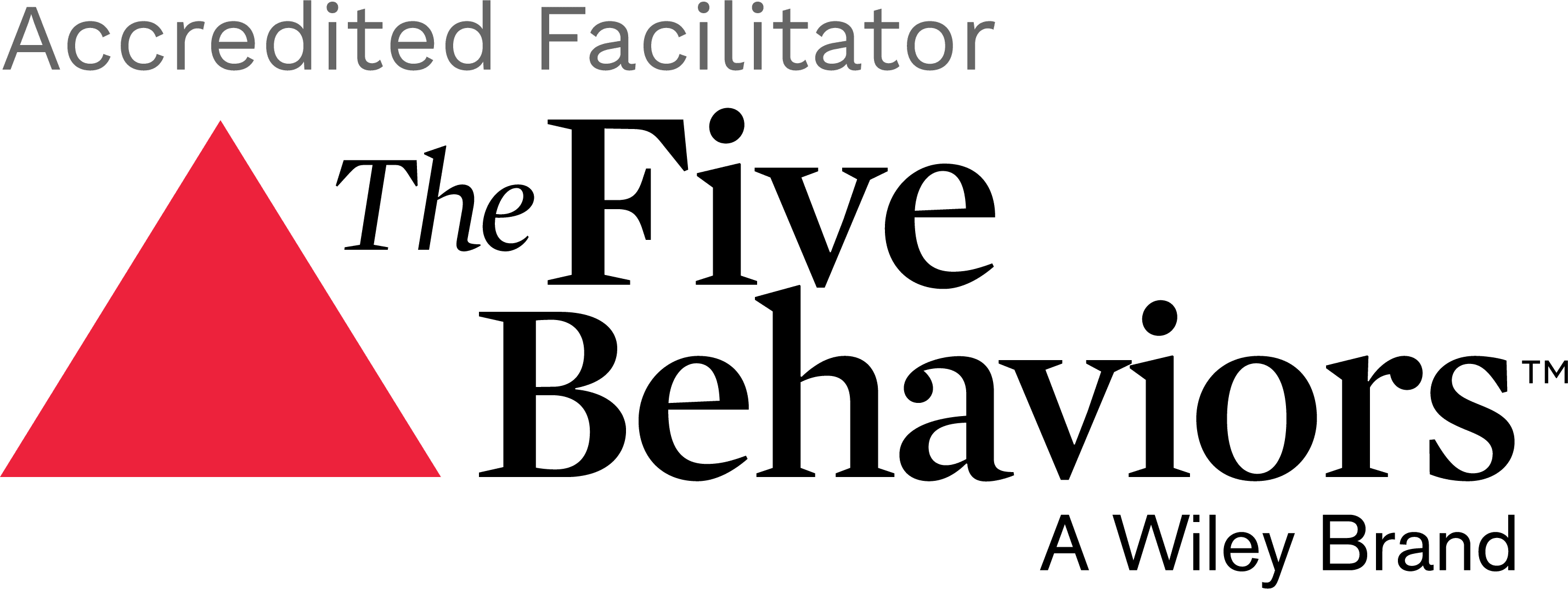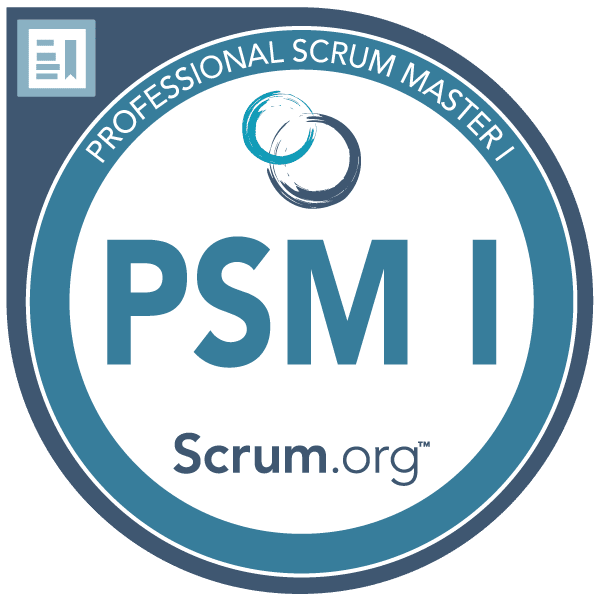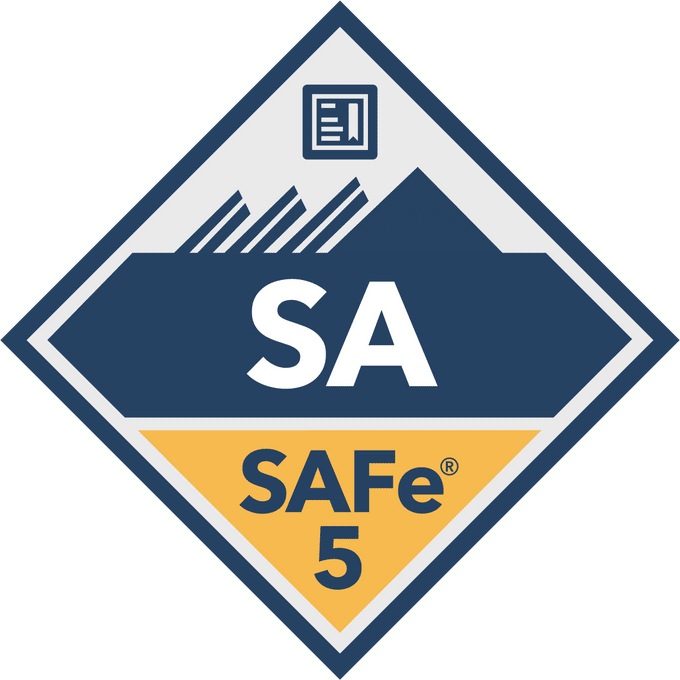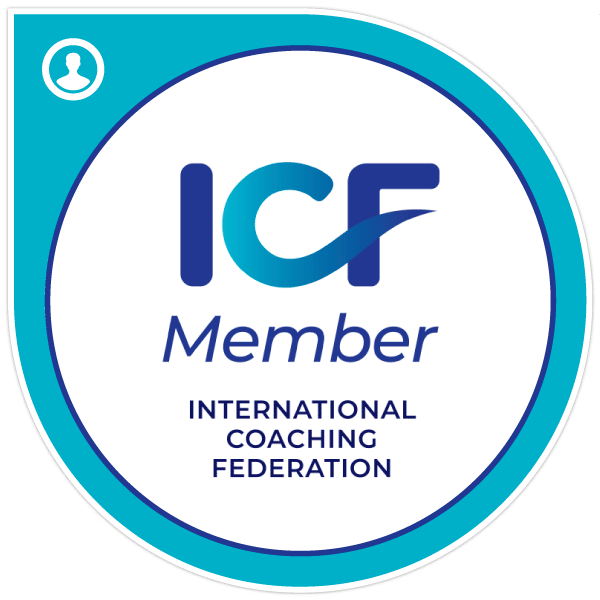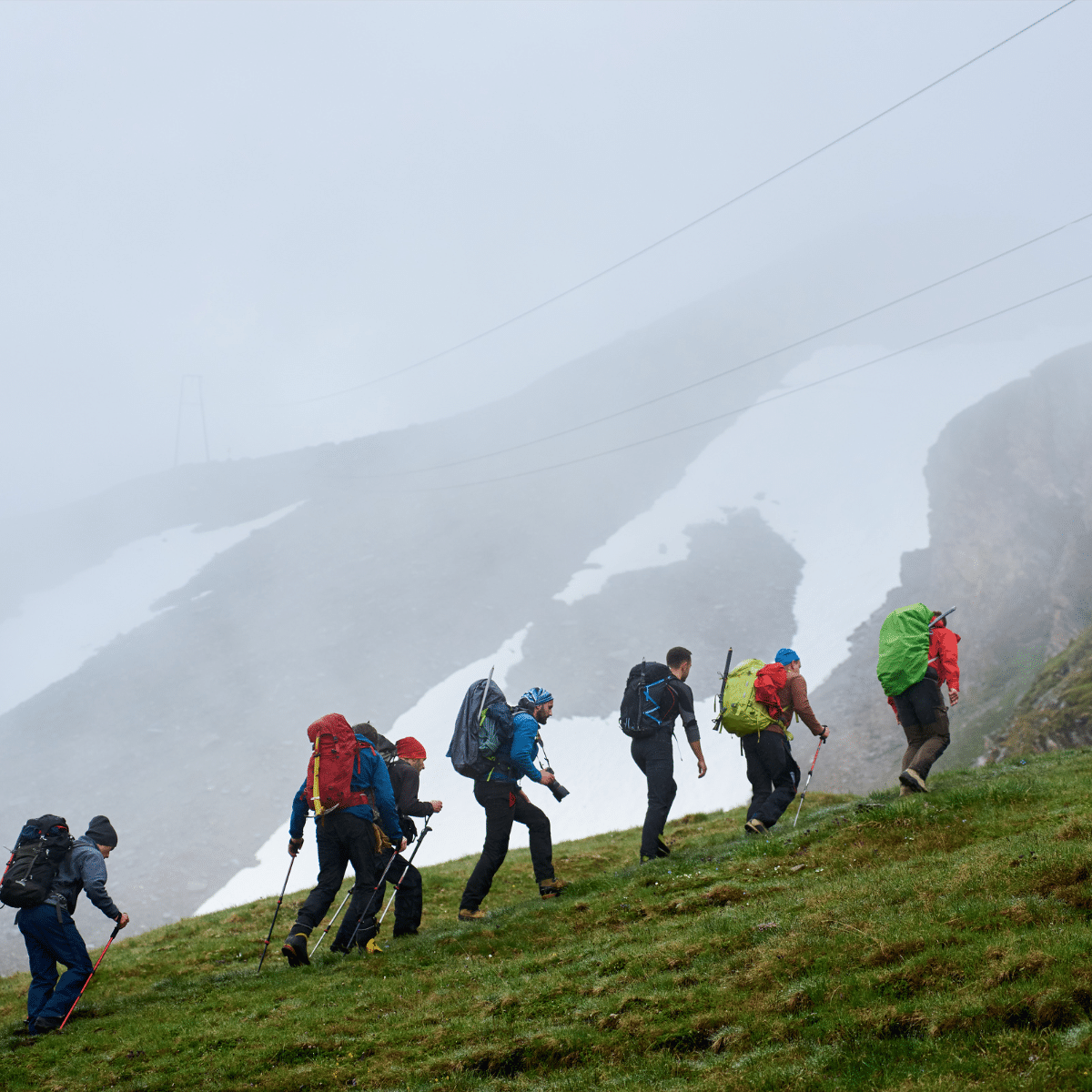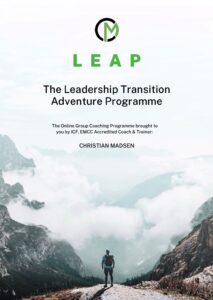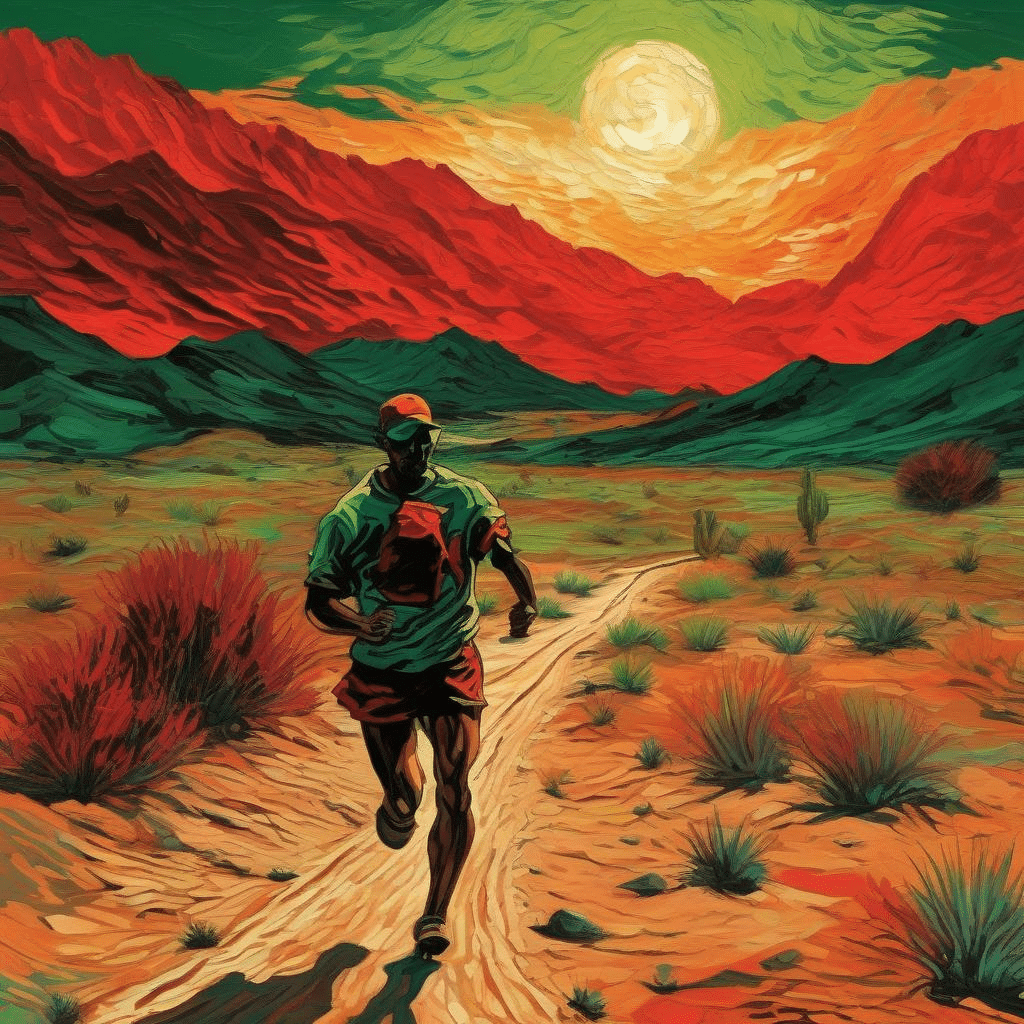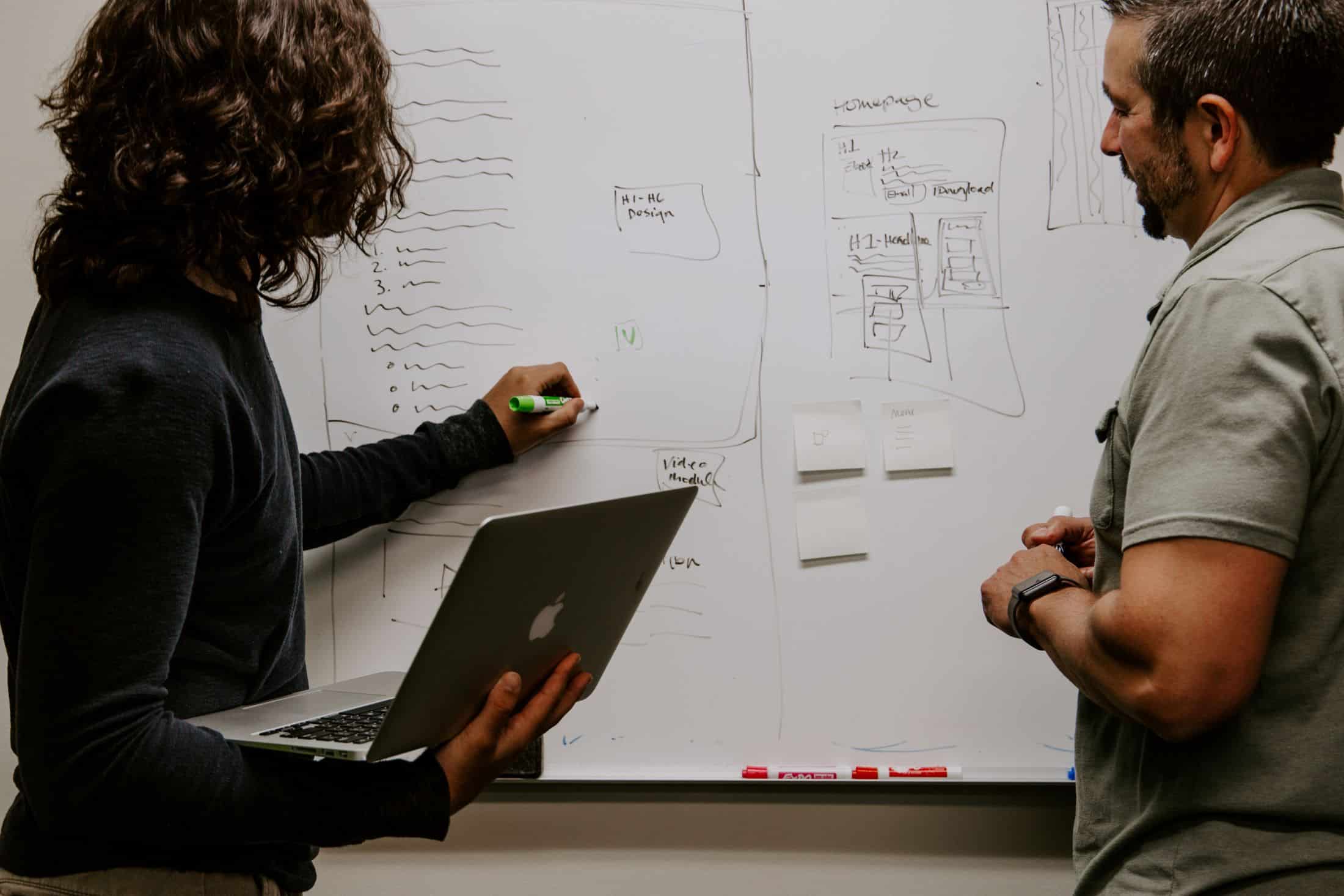Transformative Coaching and Learning
Transforming leaders, teams and professionals in transition to reach
their true potential, healthy high performance and well-being.
CHRISTIAN MADSEN, ICF & EMCC Accredited Transformational Coach
About Me.

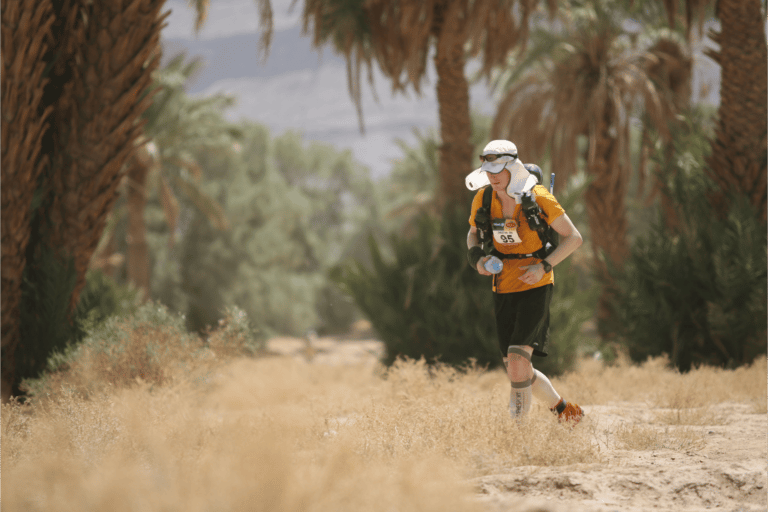
CHRISTIAN MADSEN - Transformational Coach, Facilitator
Hi there, I am Christian Madsen.
Let me introduce myself so you can get to know the person behind the professional.
I grew up in a countryside farm in Sundbylille, Denmark. At present, I live in Copenhagen with my wife Laila and our teenage son, Andy. My family means the world to me.
Over the last decade, I’ve worked with Talent Management for large corporate organizations in the Financial and Bioscience industries.
As a former Royal Danish Naval Officer and International Business Studies graduate from London South Bank University, I've honed my leadership skills and built high-performing teams in challenging situations.
Coaching and helping others reach their full potential is my true passion.
When I'm not coaching or facilitating training sessions, I love spending quality time with my family, going on smaller micro-adventures in the great outdoors and spurring on my son's football team as their Coach. Seeing their growth and unity as a team is incredibly fulfilling and a wonderful way for us to bond over something we all enjoy.
I'm also a passionate trail runner, and one of my most memorable achievements was running through the Moroccan Sahara desert.
A grueling 250 km desert multi-stage adventure in 7 days, the Marathon Des Sables is deemed by many as being one of the toughest foot races on Earth.
One time, I withdrew from the race because I cramped in both my legs on the first stage due to the heat. I was really scared and began to doubt myself and my motivation.
It was a transformational experience that changed me in ways I never expected.
This journey not only tested my physical and mental ability but also changed my perspective on life.
"It’s really the small things in life that matters."
Through founding ULTRARUN, a Performance Coaching company, I’ve been privileged to coach ultra-endurance athletes to peak performance. I helped ordinary people achieve extraordinary feats.
Now, as an Accredited Transformational Coach and Leadership & Team Development Facilitator, my mission is to help transitioning leaders, teams, and professionals realize their full potential, achieving healthy high performance and well-being.
I coach aspiring, new and seasoned leaders, peer groups, teams and high-potential professionals through their transition journeys, such as changing leadership or specialist roles, navigating career changes or becoming high-performing and highly engaged teams.
Welcome to my Transformative Coaching and Learning Practice.
Founded in 2022, this academy aims to inspire a better life — a life rooted in healthy and sustainable high performance, personal growth, well-being and positive change through combining Transformative Coaching and outdoor nature-based experiential learning.
When you work with me, expect genuine engagement and partnership and a safe space to explore your aspirations, dreams, goals, outcomes and challenges.
Coaching can be both serious and light-hearted, embracing laughter and humor.
"I truly believe that everyone has great potential and the power to transform their lives and achieve amazing things. It's my privilege to help you tap into that potential and partner with you on your journey."
My qualifications as a Coach include an Accredited Diploma in Transformative Coaching from the Animas Centre for Coaching, recognized by the International Coaching Federation (ICF Level 2), the European Mentoring & Coaching Council (EMCC), and the Association for Coaching (AC).
I am credentialed by ICF as Associate Certified Coach (ACC).
As an EMCC Accredited Coach at Senior Practitioner level, I am honored to be the Vice President of the Board for EMCC Denmark.
Whenever you're ready to embark on a transformational journey, I'm here to partner with you every step of the way.
We'll work together to achieve your full potential and embrace positive change.
No matter where you are, I also offer accessible remote online coaching worldwide.
I'm excited to connect with you soon. Please don't hesitate to get in touch.
Academic Degrees:
• MSc in International Business with Distinction, London South Bank University
• Advanced Organisational Leadership Degree, Danish Naval Officer
• Bachelor, Organisational Leadership, Danish Naval Officer
Accreditations, Certifications & Memberships:
• Accredited Diploma in Transformative Coaching, Animas Centre for Coaching
• Accredited Certificate in Group Coaching and Facilitation, Animas Centre for Coaching
• Member of the International Coaching Federation (ICF)
• ICF credential as Associate Certified Coach (ACC)
• Member of the European Mentoring and Coaching Council (EMCC)
• EMCC Accredited Coach at Senior Practitioner level
• Simplifying Coaching Certificate (12 hours) facilitated by Claire Pedrick
• Practitioner & Coach of NLP, trained with Pete Andersen (Training People)
• Practitioner of Humanistic NLP, trained with Pete Andersen (Training People)
• The Five Behaviors of a Cohesive Team™ Accredited Facilitator
• Certified TetraMap Facilitator
• Certified Team Building Instructor, BFTL in Denmark
• Professional Scrum Master
• Certified SAFe 5 Agilist
• Certified in Deeper Signals Core Drivers & Values assessment for coaching
• SHL OPQ32 assessment (Occupational Personality Questionnaire)
• SHL Verify Ability tests
• AON Cut-e Ability tests

I CAN HELP YOU WITH
Transformative Coaching
One-to-one Personal Coaching on Zoom or in person for you to achieve: outcomes or goals,
personal development or positive life and career transitions.
Leadership Coaching
Targeted one-to-one Leadership Coaching on Zoom or in person to create self-awareness and development of your identity as a Leader in complex contexts.
Team Coaching
Coaching to develop Team Leaders and their Teams towards sustainable organisational performance and healthy high performance and well-being.
Teamwork
Outdoor Team Building and Team Development: Nature-based experiential learning to promote Team learning, fun social experiences and Development.
TESTIMONIALS
I've known Christian for several years.
Various times, I have valued his great talent for coaching, communication and mentoring [...] To Christian no goal is too big - and that spreads to his surroundings.
Christian's unique mix of a high professional level, empathy and humour makes him attractive for any organization wanting to develop to the next level.
My very best recommendations goes to Christian.
Morten Munck
Cyber Security Architect / Advisor
Christian was a reliable support, advisor and coach [...] He is professional and very competent [...]
I have also experienced Christian Madsen as a keynote speaker, where he is empathetic and inspiring [...]
Marlene Skodborg Jensen
Demand Planner
I would recommend Christian as a Coach at any time. He has an authentic and trust-inspiring personality and professional approach to Coaching based on knowledge within his professional work.
Karin Sass
HR Manager Nordics
Transition Coaching Programme.
Transition Coaching can help you when you undergo life-shifts, career and role changes.
Our Transition Coaching helps facilitate critical self-reflection, so you become aware of your limiting beliefs that might be barriers to change. That awareness leads to mental perspective shifts, which enable positive life and career transitions in order to reach your full potential in life.
Our coaching is holistic and humanistic. That means taking a person-centred approach, perceiving you as a whole human being in your transitions in life and career.
6-Week Transition Coaching Programme:
Personal Coaching on Zoom or in person in a partnership to create time and space for you to think through changes you might face to help you achieve positive life and career transitions.
Runs either weekly or biweekly.

The International Coaching Federation (ICF) defines coaching as “partnering with Clients in a thought-provoking and creative process that inspires them to maximise their personal and professional potential.”
Pedrick (2021: p. 8) defines coaching in a further clear way as “a future-focused conversation between two people working in partnership in service of the thinking of one of them.”
Overall, coaching is a future-focused and open dialogue between you and your Coach to support in unlocking your potential. It is a partnership to create a space and time for your thinking and reflection.
Transition Coaching specifically focuses on the inner psychological process that people go through as they undergo their own life-shifts such as a change in career or role, moving to a new location or becoming a parent.
Transition is therefore more specifically to internalise, handle and come to terms with a shift or movement from one state, condition or phase of life to another.
We all experience Transitions in life and they are often multifaceted. Transitions can be challenging and difficult as they often involve leaving familiar situations behind and adapting to new ones. However, they can also be exciting and provide opportunities for positive growth and personal development.
Typical themes in Transition Coaching are:
- Promotions to a new role
- Navigating a career change
- Move from one functional area to another
- Changing company or organisation
- Being laid off or made redundant
- Transition from one Leadership role to another (work values, time application, skills)
- Returning to work after a leave or sabbatical
- Personal life-shifts
Below is our Transition Coaching model based on three phases of Transition (inspired by Bridges, 1988):
- Ending: Coaching session 1 — Letting go and taking stock of the situation, which can be shocking and a loss of control
- Reorientation: Coaching sessions 2-5 — Explore possibilities, mindset, skills, barriers to change, e.g. confusion, distress
- New Beginning: Coaching session 6 — Recommit to changes based on new understanding, values, attitudes
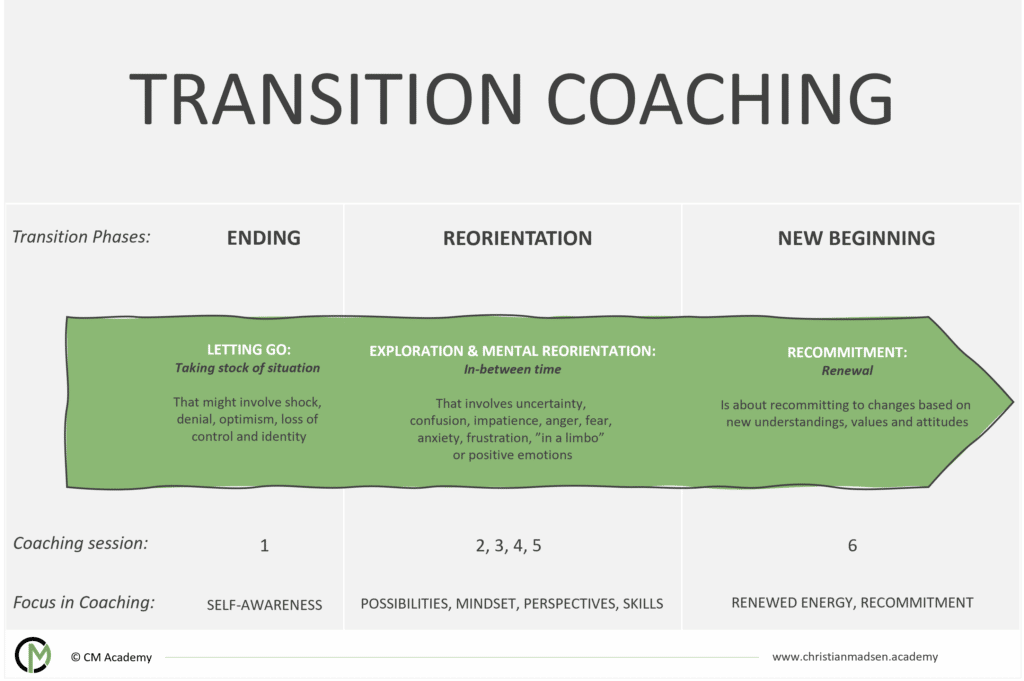
These three stages of Transition do not necessarily happen in a linear way in sequence, but can happen with cross-overs and in a non-linear manner. Therefore, our Transition Coaching can switch between phases interchangeably.
Our Transition Coaching enable transformational change by helping you obtain positive life and career changes. We will work on your self-awareness, assumptions and confidence as well as any limiting barriers to change you might have. We also explore possibilities, your focus, expectations, skills and behaviours for the future.
My coaching approach is integrative and person-centred, meaning that I draw from and flexibly integrate Behavioural Coaching, Developmental Coaching, Transformative Coaching and NLP depending on your desired outcome as a client.
As a professional Coach, I follow the rigorous standards of the ICF Code of Ethics and ICF Core Competencies by being a member of the ICF.
Below is outlined more in detail what coaching is and is not for your overview (adapted from Bolton, 2022).
Coaching is in essence:
- Client-led: Sessions are led by you the client, not by the Coach
- Dialogic: We will follow a process of conversation using questions and reflection
- Client-initiated: Desired change by you the client needs to be made by your own actions, as opposed to being done for you
- Non-advisory: You the client comes to the best answers for yourself or gains learning at a deeper level
- Non-judgemental: Your Coach is open-minded, respectful and does not judge, what you bring forward
- Change oriented: Our conversation is focused on creating change rather than coping mechanisms, i.e. it has clear goals or outcomes
- Focused on potential and growth: Assuming that people can grow and change for more well-being, realising their potential
- Not Therapy: Where past trauma, mental or physical illnesses are diagnosed/treated (e.g. by psychotherapist or psychologist)
References.
¹Pedrick, C. (2021) Simplifying Coaching: How to Have More Transformational Conversations by Doing Less, 1st ed., London: Open University Press.
²Bridges, W. (1988) Bridges Transition Model. Bay Area: William Bridges Associates.
³Bolton, N. (2022) What Is Transformative Coaching? London: Animas Centre for Coaching.
So, Why choose a Transition Coaching Programme?
Because through coaching, you can thrive and transform during transitional periods.
Our coaching takes a humanistic approach, which is perceiving you as a whole human being. That means the coaching is person-centred and holistic, meaning that it takes into account your state of thoughts (and self-talk), beliefs, assumptions, values, expectations and mindset (brain), your feelings and emotions (heart) and physiology, e.g. how you express yourself and what you say, body language and/or tone of voice (body).
In addition, in coaching you will experience that you get my undivided attention as your Coach and thinking partner, which means that I will be fully present during our sessions and your transitions.
Furthermore, our purpose is to inspire better lives and thereby healthy and sustainable human high performance, well-being, growth and positive change.
Transitions can culminate in valuable transformations if only you are given support along the way.
That makes Transition Coaching impactful.
In our Transition Coaching journey, we will focus on:
- Letting go of your previous role
- Recognising and taking stock of your situation and challenges
- Create self-reflection and self-awareness
- Explore possibilities, opportunities, mindset
- Maximising your potential and strengths
All of that can enable you to unlock your full potential and possibilities in life.
So, How does the Transition Coaching Programme work?
Our Transition Coaching Programme is transformational and life-changing and based on a 6-week programme (6 sessions weekly or biweekly).
The programme is designed to benefit you the most in your life and career transitions.
Coaching process:
- Deciding: First initial step to begin a Transition Coaching collaboration is that you are undergoing your own personal life-shifts, career or role changes: you would like to achieve a positive life or career transition.
- Schedule Discovery Call: Second step is that you book an initial discovery call, which is a free calibration call prior to beginning our coaching collaboration to ensure good alignment between us and give you an overview of the Transition Coaching Programme and opportunities.
These topics will be covered in the discovery call:– Get to know each other, building rapport and exploring personal chemistry
– What coaching and Transition Coaching is and what it is not
– Overview on the benefits of Transition Coaching
– Clarity about confidentiality and ethics involved in coaching collaboration
– Discovering what life or career transitions, you would like to work on Coaching sessions: The 6-week Transition Coaching Programme consists of six coaching sessions (60 minutes).
Coaching session 1: focuses on creating self-awareness and reflection about your transition and situation.
Coaching sessions 2-5: focuses on exploring possibilities, mindset, perspectives to reorientate.
Coaching session 6: focuses on renewal, i.e. recommitting to the changes with new understanding, values, attitudesAll coaching conversations are unique and a coaching session commonly follows a process that consists of a beginning, middle and an end, i.e.:
1) Part one focuses on rightsizing the conversation in partnership with you: agreeing on what the conversation should be about today and clarifying the changes and transition you undergo and want to bring forward
2) Part two consists of open questions by your Coach in the dialogue around the topic to explore, think and create awareness
3) Part three focuses on your learnings from the session and choices, actions and commitments agreed upon by youWe agree when to follow up, e.g. at the next Coaching session(s).
- Positive Transition: Lastly, a coaching collaboration evolves and changes direction based on your needs, so following the 6-week Transition Coaching Programme, the collaboration might come to a natural end or new focus areas for the coaching might be agreed in the next coaching sessions (client-led by you).
1:1 Transition Coaching Programme:
Based on a 6-week Transition Coaching Programme that consists of six one-to-one coaching sessions either weekly or biweekly depending on your needs.
Main target group:
Professionals, leaders and private clients mainly focused on life and career transitions: life-shifts, bigger life events and career changes such as new job, lost job, new project etc.
All Transition Coaching Programmes include:
- 1 x 30 minute free discovery call prior to starting the coaching collaboration. This is for a calibration, which ensures good alignment between you and your Coach.
- 6 x 60 minute coaching sessions (weekly or biweekly): One to one session (Zoom or in person)
- 1 x Deeper Signals Core Drivers and Core Values personality assessment to create self-awareness (takes app. 15 min)
- Unlimited access to your Coach via email (typically replies within 48 hours)
Programme investment:
All prices are including VAT.
- 6-week programme (6 hours): €1250 / 9375 DKK
Enroll today to begin your transitional journey!
6-week Transition Coaching Programme
Begin your transformational journey!All prices include VAT
-
6-week transformational journey: 6 x 60 minute coaching sessions
-
Explore your transitional situation and build self-awareness
-
Explore possibilities, mindset, perspectives to reorientate
-
Recommit to changes: new understanding, values, attitudes
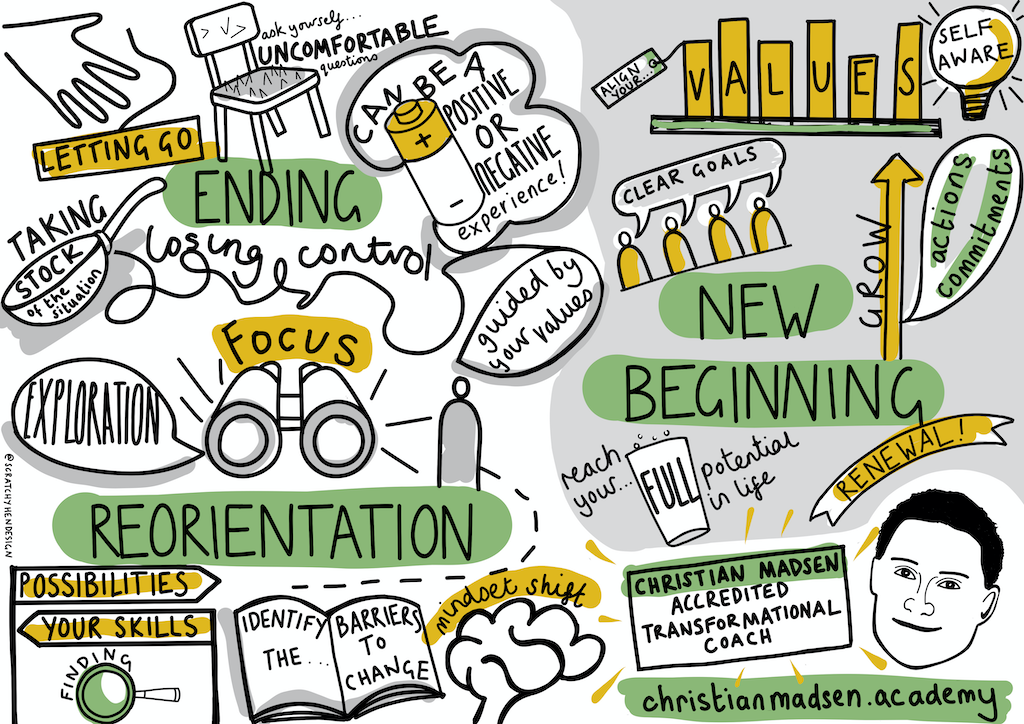
TESTIMONIALS
I've known Christian for several years.
Various times, I have valued his great talent for coaching, communication and mentoring [...] To Christian no goal is too big - and that spreads to his surroundings.
Christian's unique mix of a high professional level, empathy and humour makes him attractive for any organization wanting to develop to the next level.
My very best recommendations goes to Christian.
Morten Munck
Cyber Security Architect / Advisor
Christian was a reliable support, advisor and coach [...] He is professional and very competent [...]
I have also experienced Christian Madsen as a keynote speaker, where he is empathetic and inspiring [...]
Marlene Skodborg Jensen
Demand Planner
I would recommend Christian as a Coach at any time. He has an authentic and trust-inspiring personality and professional approach to Coaching based on knowledge within his professional work.
Karin Sass
HR Manager Nordics
Leadership Coaching Programme.
Leadership Coaching can help you in achieving your career outcomes or results as a leader, it can support your leadership development in wider areas (e.g. behaviour, stakeholder management, communication, energy management etc.) or help create change of any limiting mental perspectives.
Our Leadership Coaching is based on Transformative Coaching that can make you aware of your inner beliefs, assumptions, values and behaviours. That self-awareness can promote perspective shifts, which can grow your leadership potential and help you in becoming a more impactful leader.
Leadership Coaching is also based on humanistic coaching, which means taking a whole-person approach: mental, physical and emotional as we are one human being also in leadership.
Targeted one-to-one Leadership Coaching on Zoom or in person to create: personal awareness and development of you as a Leader in complex contexts.

The International Coaching Federation (ICF) defines coaching as “partnering with clients in a thought-provoking and creative process that inspires them to maximise their personal and professional potential.”
Pedrick (2021: p. 8) defines coaching in a further clear way as “a future-focused conversation between two people working in partnership in service of the thinking of one of them.”
Overall, coaching is therefore a dialogic process between you and your Coach. In Leadership Coaching the emphasis is on you as a human being and thus as a leader in challenging and complex leadership contexts.
Most organisations and companies today operate in a so-called VUCA world, e.g. leadership contexts that increasingly consist of Volatility, Uncertainty, Complexity and Ambiguity. That makes leadership challenging and very complex and often it entails both an international and virtual leadership dimension post-COVID.
Therefore, our Leadership Coaching will focus on you as a human being to create awareness about who you are as a leader. Typical themes in Leadership Coaching can be around how you can better handle transitions between different leadership Roles:
- How you create direction
- How you promote motivation
- How you drive task execution
- Team Building & development
- Your leadership style
- Driving Performance Management
- Stakeholder Management, e.g. influencing style and communication
- Energy management and time application as a leader
All of the above to create awareness on how you can bring the best of you as a leader forward while being impactful, yet in balance, to ensure well-being.
Coaching in general can be divided into three main coaching levels:
- Performance Coaching (Behavioural Coaching): Task-oriented focused on an outcome or goal
- Developmental Coaching: Focused on developing greater competence in a given area
- Transformative Coaching: Focused on creating perspective shifts by creating deeper self-awareness
The basis for our coaching is Transformative Coaching, i.e. coaching that creates positive human transformation and thereby positive and sustainable leadership change. However, I use an integrative approach, meaning that we can draw from a blend of Transformative Coaching, NLP etc. and flexibly use and move between the different coaching levels depending on the focus of you as a leader.
What is transformation? Transformation is sometimes characterised as a ‘light-bulb moment’ when someone sees, hears or experiences that something has changed significantly (Pedrick, 2021: p. 3). That is what Transformative Coaching can create, namely an awareness of your inner beliefs (limiting and contributing), assumptions, values and expectations and focus in life. Those areas all affect the leader you are or want to become, or have the potential to become. Our Coaching will help facilitate that transformative change for you as a leader.
As a professional Coach, my Leadership Coaching follows the rigorous standards of the ICF Code of Ethics and ICF Core Competencies by being a member of the ICF.
Below is outlined more in detail what coaching is and is not for your overview (adapted from Bolton, 2022).
Coaching is in essence:
- Client-led: Sessions are led by you the Leader (client), not by the Coach
- Dialogic: We will follow a process of conversation using questions and reflection
- Client-initiated: Desired change by you as Leader (client) needs to be made by your own actions, not done for you
- Non-advisory: You as Leader (client) comes to the best answers for yourself or gains learning at a deeper level
- Non-judgemental: Your Coach is open-minded and respectful and does not judge what you bring forward
- Change oriented: Focused on creating change rather than coping mechanisms, i.e. it has clear goals or outcomes
- Focused on potential and growth: Assuming that people can grow and change for more well-being, realising their potential
- Not Therapy: Where past trauma, mental or physical illnesses are diagnosed/treated (e.g. by psychotherapist or psychologist)
References.
¹Pedrick, C. (2021) Simplifying Coaching: How to Have More Transformational Conversations by Doing Less, 1st ed., London: Open University Press.
²Bolton, N. (2022) What Is Transformative Coaching? London: Animas Centre for Coaching.
So, Why choose a Leadership Coaching Programme?
Because coaching has multiple great benefits for oneself and for corporations and organisations.
In an impressive and extensive meta-analysis, Theeboom, Beersma and van Vianen (2014) explored if coaching could affect performance, well-being and skills. They did an extensive research of literature and brought many nuances and caveats from it and their conclusions were (Rogers, 2016: p. 283):
“The results show that coaching has significant positive effects on performance and skills, well-being, coping, work attitudes, and goal-directed self-regulation. In general, our meta-analytic findings indicate that coaching is an effective tool for improving the functioning of individuals in organisations.”
Our Leadership Coaching has a purpose of inspiring a healthy and sustainable human high performance, well-being and growth for you as leader through Transformative Coaching.
Transformative Coaching is a specific kind of coaching that can help create a more critical self-reflection and self-awareness for you as a leader and that can enable mental paradigm shifts. This enables you to unlock your full potential in leadership.
References.
¹Theeboom, T. and Beersma, B. and van Vianen, A. E. M. (2014) Does coaching work? A meta-analysis on the effects of coaching on individual level outcomes in an organizational context, Journal of Positive Psychology 9(1): pp. 1-18.
²Rogers, J. (2016) Coaching Skills: The definitive guide to being a coach, 4th ed., Berkshire: Open University Press.
So, How do the Leadership Coaching Programmes work?
Our Leadership Coaching Programmes are typically based on 3-6 months, but can last up to 12 months depending on the leadership transition and role, complexity and the organisational context. It is fully client-led by you as a leader.
The Leadership Coaching aims to bring you transformative change as a leader and the coaching process ends upon successfully having achieved your leadership development goal or when ready to conclude the collaboration.
Coaching process:
- Make a decision: The first initial step to begin a Leadership Coaching Programme is that you become curious about yourself and as a leader: that entails that you want to work on yourself as a human being and with your leadership as for you to positively change or develop as a leader. It might be through creating more awareness of your own leadership behaviours, values and beliefs affecting your leadership and energy management as to ensure your own and team’s physical and mental well-being.
- Schedule Discovery Call: The second step is that you book an initial discovery call, which is a free initial calibration call prior to beginning the Leadership Coaching Programme to ensure good alignment between us and to provide overview of the Leadership Coaching Programme.
These topics will be covered in the discovery call:– Get to know each other, build rapport and explore personal chemistry
– An overview on the value of your Leadership Coaching Programme
– Clarity about confidentiality and ethics involved in our Leadership Coaching collaboration
– Discovering what topic(s) within Leadership you would like to work on short- and long-term - Deeper Signals Core Drivers and Core Values Personality Assessment: The third step is to take Deeper Signals personality assessment prior to the first coaching session to build self-awareness (takes app. 15 min).
- Begin Leadership Coaching Programme: The fourth step is for us to decide on the most valuable Leadership Coaching Programme for you to invest in the programme and benefit the most as a leader.
- First Leadership Coaching session: The fifth step is the first Leadership Coaching session. All Coaching conversations are unique and a Leadership Coaching session commonly follows a process that consists of a beginning, middle and an end, i.e.:
1) Part one focuses on rightsizing the conversation in partnership with you: clarifying what the conversation should be about today and what Leadership topic you want to bring forward2) Part two consists of open questions by your Coach in the dialogue around the topic to explore and create self-awareness3) Part three focuses on your learnings from the session and the choices, actions and commitments agreed upon by you
We agree on how to follow up, e.g. at the next Leadership Coaching session(s).
- Transformative change: Lastly, a Leadership Coaching Programme typically ends by successfully having achieved your leadership development goal or transformative change in your leadership.
1:1 Leadership Coaching Programme:
The offered Leadership Coaching is typically based on a 3 or 6 month programme, but can last up to 12 months depending on the leadership transition and role, complexity and the organisational context.
Main target group:
New and more seasoned Leaders (Leader of Others, Leader of Leaders, Functional Leaders and Business Leaders) in Corporations and Organisations.
All Leadership Coaching Programmes include:
- 1 x 30 minute free discovery call prior to starting the Leadership Coaching Programme. This is to calibrate and ensure there is a good fit between you and your Coach.
- 2 x 60 minute 1:1 Leadership Coaching sessions per month (Zoom or in person)
- 1 x 60 minute Nature immersion sessions (coaching session outdoor in nature) every quarter in Zealand, Denmark
- 1 x Deeper Signals Core Drivers and Core Values personality assessment to build self-awareness (takes app. 15 min)
- Unlimited access to Coach via email and WhatsApp (typically replies within 24 hours)
Additional support options that can be added:
- Benefit from bespoke 1 x 360° Leadership assessment interview (survey) feedback
Programme investment:
All prices are including VAT.
- 3-month programme: €2660 / 19.950 DKK
- 6-month programme: €4620 / 34.650 DKK
Book a free discovery call!
To learn more about the different leadership coaching programmes.
Or get in touch with me at:
coach@christianmadsen.academy
3-month Leadership Coaching
Start your impactful 3-month leadership developmentAll prices include VAT
-
3 months: 6 x 60 minute coaching
-
Nature immersion: 1 x 60 min nature coaching
-
Explore your leadership challenges
-
Build your self-awareness to change
6-month Leadership Coaching
Begin your transformational 6-month leadership journey!All prices include VAT
-
6 months: 12 x 60 minute coaching
-
Nature immersion: 2 x 60 min nature coaching
-
Transform from ineffective to highly effective leader
-
Work on behavior change and lasting impact
ELEVATE: High Performance Programme.
ELEVATE is a 12-Week High Performance Coaching Programme built specifically to enhance well-being and performance in your personal life, educational and work domains. All to have the life you want and to achieve success.
This is a unique coaching programme, based on Transformative Coaching and combines: Coaching, perspectives from working with Athletes to peak performance, experiences from Military Leadership Training, from a selection of diverse talents in large Corporate Companies and from my Start-up/Entrepreneurial experience of making a business successful.
12-Week High Performance Coaching Programme: Personal Coaching on Zoom, a partnership to help you achieve your most incredible dreams & goals in life by ELEVATING your performance & well-being to enable you to succeed.
Runs in partnership with you over 12 consecutive weeks.
“The best way to inspire people to superior performance is to convince them by everything you do and by your own attitude that you are wholeheartedly supporting them.”
Harold S. Geneen
“Gritty people train at the edge of their comfort zone. They zero in on one narrow aspect of their performance and set a stretch goal to improve it.”
Angela Duckworth

Holistic Life, Performance and Well-being
Thinking space of presence, active listening and reflection in order to hear your thoughts and gain self-awareness to be able to change, perform and succeed.
Inspiring holistic thinking about goal-setting (outcome, performance, process), self-control and grit, positive focus & beliefs, well-being, i.e. physical activity, sleep & recovery, nutrition, mental energy & having fun to incrementally improve.
Learn from military training and think about structured yet context adaptable process focus, growing your grit & determination, feedback-loops (briefing and debriefing).
Essential perspectives from selecting high-performing diverse talents in corporate companies.
Thinking about creativity, testing, failing and learning to become successful.
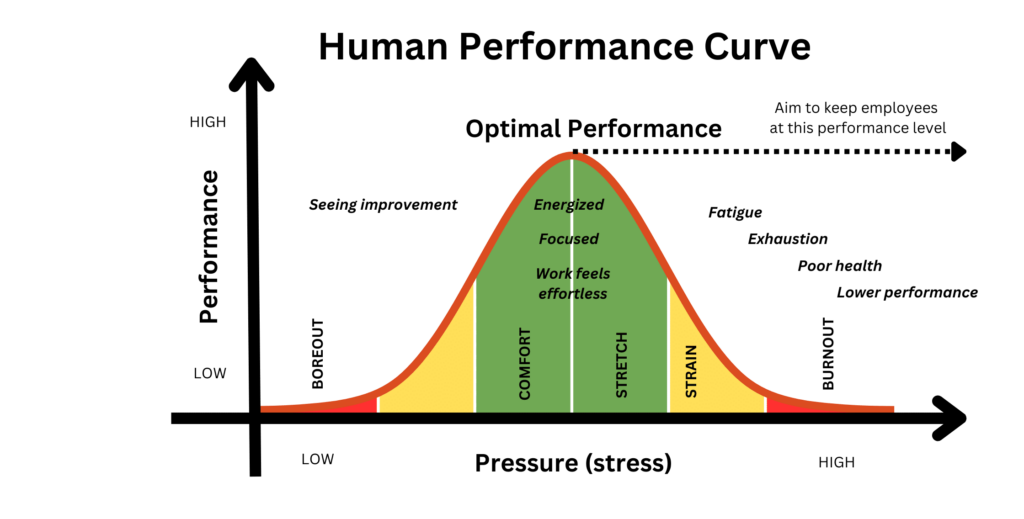
Pedrick (2021: p. 8) defines Coaching in a really clear way as “a future-focused conversation between two people working in partnership in service of the thinking of one of them.”
Coaching overall is a dialogic process, a facilitated conversation, between you and your Coach to help you think, become self-aware and from that be able to learn and change.
Our ELEVATE: High Performance Coaching Programme is uniquely designed to enhance wellbeing and performance in your personal life, educational and work domains.
We will integrate and combine perspectives from both Transformative Coaching, perspectives from working with endurance athletes to achieve peak performance, experiences of finding and growing your grit and determination from Military Leadership Training, from recruitment selection of diverse talents in large corporate companies and from entrepreneurial mindset in Start-ups and experience making a business successful.
Our coaching sessions and partnership will be based on the dreams, goals and outcomes that you want to work on and achieve, i.e. what we talk about in each session is guided by you (client-led).
Our coaching conversations can flexibly switch between 3 main coaching levels to benefit you the most:
- Performance Coaching (Behavioural Coaching): Task-oriented focused on an outcome or goal
- Developmental Coaching: Focused on developing greater competence in a given area
- Transformative Coaching: Focused on creating perspective shifts by creating deeper self-awareness
As a Coach and member of the International Coaching Federation (ICF), I follow the high standards of the ICF Code of Ethics and ICF Core Competencies.
I continuously focus on my own development as a Coach with new courses and education as well as receiving coaching supervision for my own coaching practice 4-6 times per annum.
References.
¹Pedrick, C. (2021) Simplifying Coaching: How to Have More Transformational Conversations by Doing Less, 1st ed., London: Open University Press.
So, Why choose the ELEVATE: High Performance Coaching Programme?
Coaching can have several beneficial effects such as improved performance and well-being, which leads to success.
In a very insightful research publication Duckworth and Gross (2014) find that both Self-Control and Grit are two of such important determinants of success.
So, to become successful in life these two traits are important.
According to Duckworth and Gross (2014) “Self-Control is the capacity to regulate attention, emotion, and behaviour in the presence of temptation”, i.e. often referred to as willpower when there is conflict between two or more possible impulses.
Grit on the other hand is defined as “passion and perseverance toward especially long-term goals” and done so “as a tenacious pursuit of a dominant superordinate goal despite setbacks.”
In another research and extensive meta-analysis, Krekel, Ward and De Neve (2019) have found that there are also correlations between employee well-being, employee productivity and firm performance across different industries and regions.
Their work and findings suggest a “strong, positive correlation between employee wellbeing, productivity and firm performance. The evidence base is steadily mounting that this correlation is in fact a causal relationship (running from wellbeing to productivity).”
In this unique coaching programme, we perceive well-being and performance holistically as mutually interdependent where having a better whole life of enhanced physical and mental well-being leads to healthy, sustainable and stronger performance.
We among others draw inspiration from and introduce these terms of Self-Control and Grit to our thinking derived from working with Ultra Endurance Athletes and perspectives from Military Leadership Training.
Furthermore, our coaching is based on Transformative Coaching, which is a specific kind of coaching that helps create a more critical self-reflection and self-awareness that can enable mental paradigm or perspective shifts.
We will in our 12 weeks of coaching take a humanistic approach, that perceives you as a whole human being and thereby perceiving life, well-being and human high performance holistically.
In this intensive coaching programme you will receive my undivided attention as your Coach and thinking partner in each session and conversations over the course of 12 weeks.
This special transformational High Performance Programme is designed to inspire better lives and help you achieve your dreams and goals in life while ensuring healthy and sustainable human high performance and well-being.
All of that can enable you to unlock your full potential and become more successful in life.
References.
¹Duckworth, A. and Gross, J. J. (2014) Self-Control and Grit: Related but Separable Determinants of Success, Current Directions in Psychological Science 23(5): pp. 319-325.
²Krekel, C., Ward, G. and De Neve, J-E. (2019) Happy employees and their impact on firm performance, CentrePiece Summer 2019 The London School of Economics and Political Science: pp. 16-19.
³Krekel, C., Ward, G. and De Neve, J-E. (2019) Employee Wellbeing, Productivity, and Firm Performance, Said Business School WP 2019-04: pp. 1-43.
So, How does the ELEVATE 12-week Coaching Programme work?
The High Performance Coaching Programme is based on 12 weeks in a row of coaching sessions designed to elevate your performance and well-being.
Coaching process:
- Motivated to change: The first initial step to begin the ELEVATE: High Performance Coaching Programme is your desire to achieve your wildest dreams, to become successful and that you are motivated to change: you might want to perform better in your job, want to achieve your dreams in sports or want to unleash your real potential in life.
- Schedule Discovery Call: The second step is that you book an initial discovery call, which is a free calibration call prior to beginning the ELEVATE Coaching Programme to ensure good fit and partnership between us and give you an opportunity to experience your Coach.
These topics will be covered in the discovery call:
– Get to know each other, build rapport and explore personal chemistry– An explanation of what coaching is and what it is not
– An overview on the benefits of the ELEVATE Coaching Programme
– Clarity about confidentiality and ethics involved in coaching collaboration
– Discovering what topic(s) within your life, you would like to work on short- and long-term - Coaching sessions: The third step is the weekly 60 minute Coaching sessions.
All Coaching conversations are held online using Zoom and every conversation is unique.
The Coaching sessions commonly follow a process that consists of a beginning, middle and an end, i.e.:
1) a first part focusing on rightsizing the conversation in partnership with you: agreeing on what the conversation should be about today and clarifying the topics, outcomes or goals you want to bring forward2) a second part where your Coach uses open questions in the dialogue around the topic to explore, think and create awareness
3) a third part focusing on your learnings from the session: actions, accountabilities and commitments agreed upon by you - Session Learnings: Each of our 12 coaching sessions end with accountabilities and actions that enable you to get closer to achieving your goals and dreams.
ELEVATE: High Performance Coaching Programme:
Based on a 12-week Coaching Programme of one-to-one Personal Coaching to help you unleash your potential in life and make your dreams & goals come true and grow sustainable high performance in order to become more successful.
Week 1-12: Consist of Coaching sessions every week in consecutive weeks.
Main target group:
For committed professionals who want to enhance their performance & well-being. You might not be performing well at the moment, are unclear on how to achieve your dreams or you have imbalances in your life. Or you are already a high-performer who wants to improve and achieve success personally and professionally.
The programme includes:
- 1 x 30 minute free discovery call prior to starting the Coaching Programme. That is to have a calibration, which ensures a good alignment and partnership between you and your Coach.
- 12 x 60 minute coaching sessions: Weekly one to one sessions (all sessions online on Zoom)
- 1 x Deeper Signals Core Drivers and Core Values personality assessment for self-awareness (takes app. 15 min)
- Unlimited access to Coach via email and WhatsApp (typically replies within 24 hours)
Programme investment:
All prices are including VAT.
- 12-week High Performance Programme: €3200 / 24.000 DKK
ELEVATE: High Performance Programme
Begin your 12-week transformational journey to high performance & well-beingAll prices include VAT
-
12 weeks: 12 x 60 minute coaching
-
Transform from mediocrity to peak performance
-
Elevate your performance and well-being
-
Change your limiting beliefs to overcome barriers
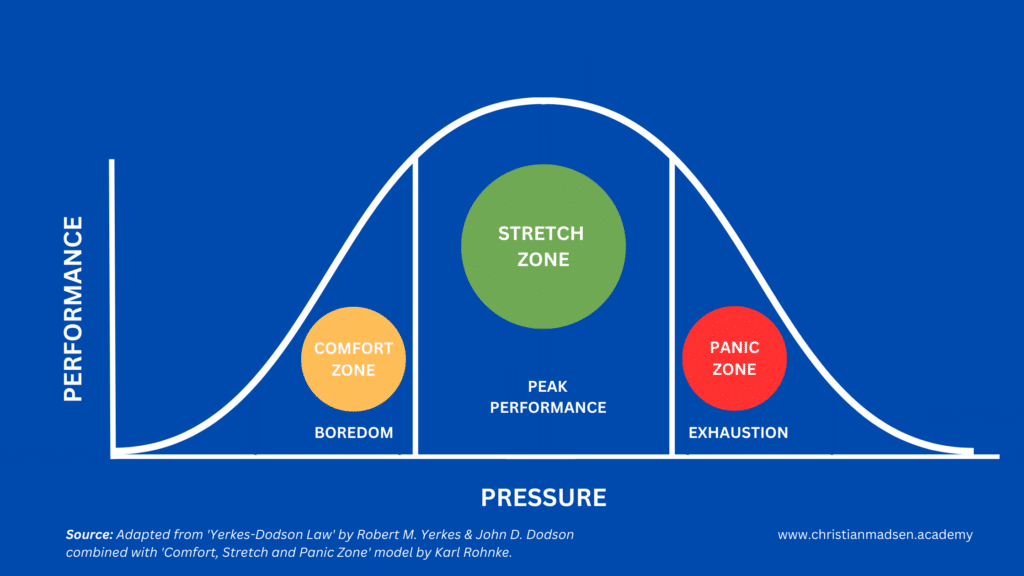
LEAP: The Leadership Transition Adventure.
LEAP is a 4-week online leadership transition group coaching programme. It’s your opportunity to becoming a better and more effective leader through successful leadership transitions.
This programme is suitable for leaders, who want to improve and accelerate their leadership transition and connect and learn from like-minded peers, who are leaders in different organizations.
In LEAP, we will focus on you as an individual leader in the group. You’ll learn from peer group coaching, tackle real-life cases and leadership transition challenges and gain experiences from the group to support you with your leadership transition.
"To unlearn is as hard as to learn."
Aristotle
4-Week Leadership Transition Group Coaching:
An interactive, co-created group setting and space for self-discovery, reflection and decision-making within the group. We help you develop as an individual leader in the group and support you around your transition through collective exploration and peer group coaching
Involves: Action Learning and Balint style coaching.
Programme outline
This programme outline is a guide on the content of the 4-week group coaching programme.
Please note that in agreement with each cohort, content will be slightly adapted to meet group needs and provide the most value.
In this first session, your Coach partners with you to set expectations and get to know your peer group of leaders (creating safe and trusting space and agreement).
The group will engage in Action Learning Sets:
- Presenter (hot seat) shares leadership transition challenge uninterrupted
- Group members ask the presenter questions about the challenge (peer-to-peer coaching)
- Round up and reflection on key experiences, takeaways and actions from session
- All participants will get time to present in week #1-2
- Wrap-up
In this 2nd session, your Coach partners with you in reflecting on learnings since the last session. The Leadership Pipeline concept and transition elements are introduced.
The group will continue with new Action Learning Sets:
- Presenter (hot seat) shares leadership transition challenge uninterrupted
- Group members ask the presenter questions about the challenge (peer-to-peer coaching)
- Round up and reflection on the experience, takeaways and actions
- All participants will get time to present in week #1-2
- Wrap-up
In the 3rd session, your Coach partners with you in reflecting on learnings since the last session. Balint-style group coaching is introduced.
The group engages in Balint-style group coaching:
- Presenter(s) brings topic / challenge from leadership transition to the group
- The Coach clarifies the topic or challenge with the presenter
- Group members discuss what topic / challenge the presenter brings
- Round up and reflection on the experience, takeaways and actions
- All participants will get time to present in week #3-4
- Wrap-up
In the 4th session, your Coach partners with you in reflecting on learnings since the last session. The group works on how they can become better, more effective leaders from here.
The group continues Balint-style group coaching:
- Presenter(s) brings topic / challenge from leadership transition to the group
- The Coach clarifies the topic or challenge with presenter
- Group members discuss what topic / challenge the presenter brings
- Round up and reflection on the experience, takeaways and actions
- All participants will get time to present in week #3-4
- Appreciative inquiry elements will be introduced for reflection
- Wrap-up / your next LEAP as a leader
"Before people can begin something new, they have to end what used to be and unlearn the old way."
William Bridges
Become a more effective leader in 4 weeks!

Successful leadership transitions, together with peers:
4-week online group coaching programme.
LEAP Programme
Begin your transitional journey from struggling to effective leaderAll prices include VAT
-
Kick-off to agree on expectations
-
4 x 90 minute online group coaching
-
Wrap up (with Q & A / next steps)
-
WhatsApp group access (for Q & A)
Team Coaching Programme.
Team Coaching can help you improve your collective team performance and how you work together as a team and collaborate with stakeholders to create value (e.g. building team spirit, co-creation, trust, psychological safety, commitment, accountability etc.). It can make your team more unified and cohesive and thereby better in achieving results together.
Our Team Coaching is based on Transformative Coaching that creates more self-awareness. That awareness can lead to impactful changes in your team dynamics, which can be transformative for the team.
The Team Coaching integrates elements from Systemic Team Coaching, Action Learning and Balint style coaching and keeps a learning and humanistic perspective.
Tailored Team Coaching to develop Team Leaders and their Team members towards sustainable organisational performance: healthy high performance and well-being.
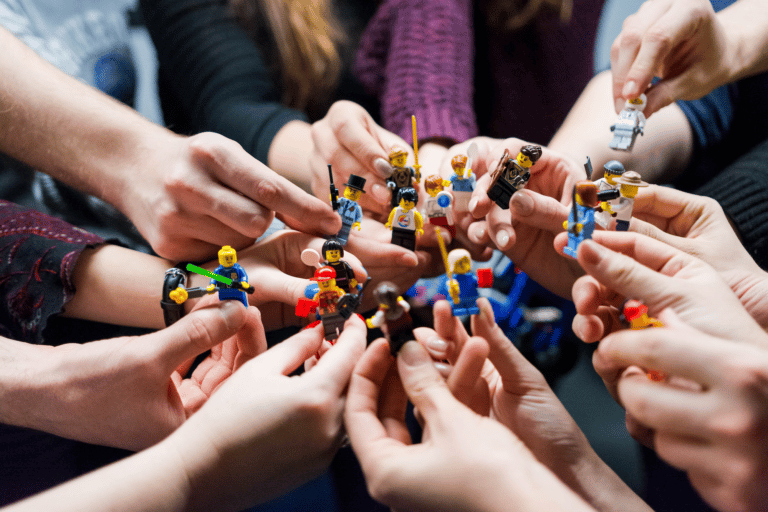
Today’s modern 21st Century organisations and companies operate in a fast-paced and so-called VUCA world. It is a business context which is increasingly Volatile, Uncertain, Complex and Ambiguous. To remain competitive in today’s world, teams need to become cohesive, agile and able to collaborate cross-functionally to be able to innovate, create value and adapt to uncertain business contexts.
Simultaneously, the pressure on Team Leaders and teams from such challenging business contexts makes it ever increasingly necessary to focus on healthy and sustainable high performance in teams where physical and mental well-being are positively balanced.
Balance is like a rhythm. It has movement to it and resilience comes when both individual team members and the whole team can alternate well between states within that rhythm. Like seasons in nature. That creates well-being and with that comes improved performance.
By having a well-balanced and healthy performance, teams are able to contribute with extended value within organisations.
The Team Coaching process builds a close coaching relationship to enable both you as a Team Leader and your team members to become a high performing and very cohesive team. The Team Coaching will help explore and discover the underlying team dynamics and issues.
The Team Coaching Programme, will be tailored to your team and business context.
Typical themes where Team Coaching will be valuable for your team are:
- To quickly achieve high performance for newly established teams
- To increase collaboration in diverse teams
- To build more unified and cohesive teams: aligned on common purpose, collective results
- To improve well-being and positively balanced high performance in the team
- In achieving performance goals and objectives
- In effectively engaging with and co-creating value cross-functionally with stakeholders
- In growing a learning team and organisation
- To positively contribute to transforming the business
- To take high performing teams to the next level
Our Team Coaching draws from 3 main practices:
- Systemic Team Coaching: Focus is on the whole team (including Team Leader) within the system, i.e. within the organisation
Hawkins (2017) defines Systemic Team Coaching as “a process by which a team coach works with a whole team, both when they are together and when they are apart, in order to help them improve both their collective performance and how they work together, and also how they develop their collective leadership to more effectively engage with all their key stakeholder groups to jointly transform the wider business.”
- Action Learning: Focus on real life problems and actions, process to build space for curiosity, inquiry, reflection and learning
Whitcomb (2008) describes Action Learning as “a group-coaching approach that uses real people to solve real problems, in real time, to obtain real results.”
“It is a process that brings people together to solve challenges, learn through reflection, and take action.”
“Action Learning groups can work on a single problem or challenge that affects the entire group or on several problems presented by individual group members.”
- Balint Groups: Focus on case from presenter, team inquiry and deep listening from presenter as team discusses case
While integrating these three Team Coaching practices, the main basis for our Team Coaching is Transformative Coaching, i.e. coaching that is transformative for the team by creating positive and sustainable change. However, I use an integrative approach, meaning that we can flexibly use and move between the different Team Coaching practices depending on the Team Leader and team members.
What is transformation? Transformation is sometimes characterised as a ‘light-bulb moment’ when someone sees, hears or experiences that something has changed significantly (Pedrick, 2021: p. 3). That is what Transformative Coaching can create, namely an awareness of inner beliefs (limiting and contributing), assumptions, values and expectations and focus in life. Those areas all affect the team dynamics. Our coaching will help facilitate that transformative change for you as the Team Leader and team members.
As a professional Coach, the Team Coaching follows the rigorous standards of the ICF Code of Ethics and ICF Core Competencies and I am a member of the ICF.
Below is outlined more in detail what Team Coaching is and is not for your overview (adapted from Bolton, 2022).
Team Coaching is in essence:
- Client-led: Topics are led by the client, i.e. the Team Leader and team, not by the Coach
- Dialogic: Process of conversation using team inquiry, deep listening, reflection and learning
- Client-initiated: Desired change by the Team Leader and team needs to be achieved through own actions
- Non-advisory: The client, i.e. the team, comes to the conclusions for themselves or gains learning at a deeper level
- Non-judgemental: The Coach is open-minded and respectful and does not judge what the client, i.e the Team, brings forward
- Change oriented: Focused on creating change rather than coping mechanisms, i.e. it has clear goals or outcomes
- Focused on potential and growth: Assuming that people can grow and change for more well-being, realising their potential
- Not Therapy: Where past trauma, mental or physical illnesses are diagnosed/treated (e.g. by psychotherapist or psychologist)
References.
¹Hawkins, P. (2017) Leadership Team Coaching: Developing Collective Transformational Leadership, 3d ed., London: Kogan Page Ltd
²Whitcomb, J. (2008) Action Learning: An Approach to Team Coaching. In: Wahl, C., Scriber, C., Bloomfield, B. (eds) On Becoming a Leadership Coach. New York: Palgrave Macmillan.
³Pedrick, C. (2021) Simplifying Coaching: How to Have More Transformational Conversations by Doing Less, 1st ed., London: Open University Press.
4Bolton, N. (2022) What Is Transformative Coaching? London: Animas Centre for Coaching.
So, Why choose a Team Coaching Programme?
Because coaching has multiple great benefits for oneself, teams and for corporations and organizations.
In an impressive and extensive meta-analysis, Theeboom, Beersma and van Vianen (2014) explored if coaching could affect performance, well-being and skills. They did an extensive research of literature and brought many nuances and caveats from it and their conclusions were (Rogers, 2016: p. 283):
“The results show that coaching has significant positive effects on performance and skills, well-being, coping, work attitudes, and goal-directed self-regulation. In general, our meta-analytic findings indicate that coaching is an effective tool for improving the functioning of individuals in organisations.”
Our Team Coaching looks at the individual and team as a whole. It has a purpose of inspiring a healthy and sustainable high performance, well-being and positive change for you as Team Leader and team member through Transformative Coaching.
Transformative Coaching is a specific kind of coaching that can help create more critical self-reflection and self-awareness for you as a Team Leader and team member, which can enable transformative change in team dynamics and collaboration.
This can enable you to unlock your full potential as a team.
References.
¹Theeboom, T. and Beersma, B. and van Vianen, A. E. M. (2014) Does coaching work? A meta-analysis on the effects of coaching on individual level outcomes in an organisational context, Journal of Positive Psychology 9(1): pp. 1-18.
²Rogers, J. (2016) Coaching Skills: The definitive guide to being a coach, 4th ed., Berkshire: Open University Press.
So, How do the Team Coaching Programmes work?
Our Team Coaching Programmes are typically based on 6-12 months programmes depending on the team, its team dynamics and business context.
The Team Coaching aims to bring you Transformative change as a team and the coaching process is fully tailored to your team development needs.
Team Coaching process:
- Awareness: The first initial step to begin a Team Coaching Programme is that you as Team Leader become aware of issues or challenges in how your team work together, e.g. related to a lack of or inconsistent performance, communication, pressures on well-being etc. – Based on that awareness, you decide to explore what Team Coaching can do for your team.
- Schedule Discovery Call: The second step is that you book an initial discovery call, which is a free initial calibration call prior to beginning the Team Coaching Programme to ensure good fit between us and to provide an overview of the Team Coaching Programme.
These topics will be covered in the discovery call:– Get to know each other, build rapport and explore personal chemistry
– An overview on the value of a Team Coaching Programme
– Clarity about confidentiality and ethics involved in Team Coaching Programme
– Discovering preliminary outcome(s) of the Team Coaching short- and long-term
– Scheduling the sign-off session with Team Leader and Sponsor Begin Team Coaching Programme: The third step is for us to tailor the most valuable Team Coaching Programme either as a 6-month programme or 12-month programme at a sign-off session with you as Team Leader and your business Sponsor. At this session the Team Coaching Programme is scoped, agreed upon and signed off together.
- Team Coaching sessions: We kick-off the Team Coaching sessions by starting off with a team discovery and exploration session based on inquiry, listening and reflective dialogue drawing from Systemic Team Coaching, Action Learning and Balint style coaching to understand the team, its underlying challenges and internal team dynamics in its business context.
Next, based on the initial discovery session, the focus of the coming Team Coaching Programme is further developed, refined, agreed and contracted.Coming Team Coaching sessions are scheduled and the Team Coaching Programme is executed upon together.
- Debriefing and Learning: Lastly, the Team Coaching Programme ends by successfully having achieved your Team Coaching objective and transformative change for the team.
Debriefing: The Team Coaching Programme is reviewed and we evaluate the positive transformative changes for the team. Learnings from the group are captured and used for next steps and actions.
Tailored Team Coaching Programme:
The offered Team Coaching is typically based on a 6 or 12 month programme depending on the team, its context and the dynamics of the team. The programme is tailored to your needs working closely together with you as Team Leader and team members.
Main target group:
Newly established teams, leadership teams, agile teams, project teams, sports teams in corporations and organizations.
All Team Coaching Programmes include:
- 1 x 30 minute free discovery call prior to starting the Team Coaching collaboration.
This is to calibrate and ensure there is a good fit between the Coach and Team Leader. - 1 x 60-90 minute Sign-off with Team Leader and Business Sponsor: scoping and agreement of Team Coaching
- 2 x 60 minute Team Coaching sessions with Team Leader and team per month (Zoom or in person)
- Unlimited access to Coach via email and WhatsApp (typically replies within 24 hours)
Additional support options that can be added:
- 1 x 60 minute 1:1 coaching session with Team Leader every month (Zoom or in person)
- 1 x 60 minute Nature immersion session (coaching session outdoor in nature) every quarter in Zealand, Denmark
- ½-1 Day (4-8 hours) of “shadowing” of Team Leader and team in own organisation
- 1 x Deeper Signals Team Dynamic assessment of diversity and combined strengths & gaps (Core Values and Core Drivers)
Programme investment:
- 6 or 12 month programme tailored to your needs — contact me for pricing or book a discovery call
Book a free consulting call!
To learn more about pricing or how we can tailor your team coaching programme.
Or get in touch with me at:
coach@christianmadsen.academy
Teamwork by Nature.

Being outdoors in nature has remarkable positive and rejuvenating effects on us humans. I use nature as a regenerative playing field, a soothing space for practical and experiential learning, development and team building for corporations and organisations.
Our team building and team development are tailored to your specific needs and they are designed to be value-adding for you. All takes place in nature and outdoor expedition-style activities are both challenging, immersive and transformative for Teams.
Certified BFTL industry approved Team Building Instructor √
Five Behaviors of a Cohesive Team™ Accredited Facilitator √
Certified TetraMap Facilitator √
Tailored expedition-style Team Building or Team Development through practical active learning: Safe and well-organised nature-based experiential learning outdoors in nature to promote team learning, social cohesiveness, fun experiences, motivation or actual Team Development.



Kolb (1984: p. 38) describes experiential learning or learning as “…the process whereby knowledge is created through the transformation of experience.”
The basis for all of our Team Building and Team Development is outdoors in nature through practical and active experiential learning. Nature is a great playing field, where ideas can be tried out in real life, while learning based on experiences in the team.
That means that team members are activated in various exercises and they receive continuous feedback to learn and adapt.
Overall, experiential learning can be categorised by David Kolb’s (1984: p. 30) four-stage learning cycle:
1) Concrete experience, i.e. either having actual experience or re-interpreting an experience
2) Reflective observation, i.e. reflecting on the new or re-interpreted experience related to existing knowledge
3) Abstract conceptualization, i.e. learning from the experience and/or modifying abstract concept
4) Active experimentation, i.e. trying out and applying what you have learned
Teams and Groups are different constellations and it is worthwhile to distinguish between the two terms as they are often wrongly used interchangeably. However, that clarification is important when outlining Team Building and Team Development.
Katzenberg and Smith (1993) defined a Team as “a small number of people with complementary skills who are committed to a common purpose, set of performance goals, and approach for which they hold themselves mutually accountable.”
For a Working Group on the other hand, individual accountability is most important (Katzenberg & Smith, 1993). Focus for a Group is always on individual goals and accountabilities, so group members don’t take responsibility for results other than their own (Katzenberg & Smith, 1993).
So a Team is characterised by sharing a common purpose and working together to achieve individual and common goals and results. A Group is on the other hand only focused on individual goals and accountabilities.
Teams are established and the cooperation is developed to high performance through different development stages and my Team Building and Team Development address these different stages of development for teams.
These stages are well illustrated below by Bruce Tuckman’s Team Development model:
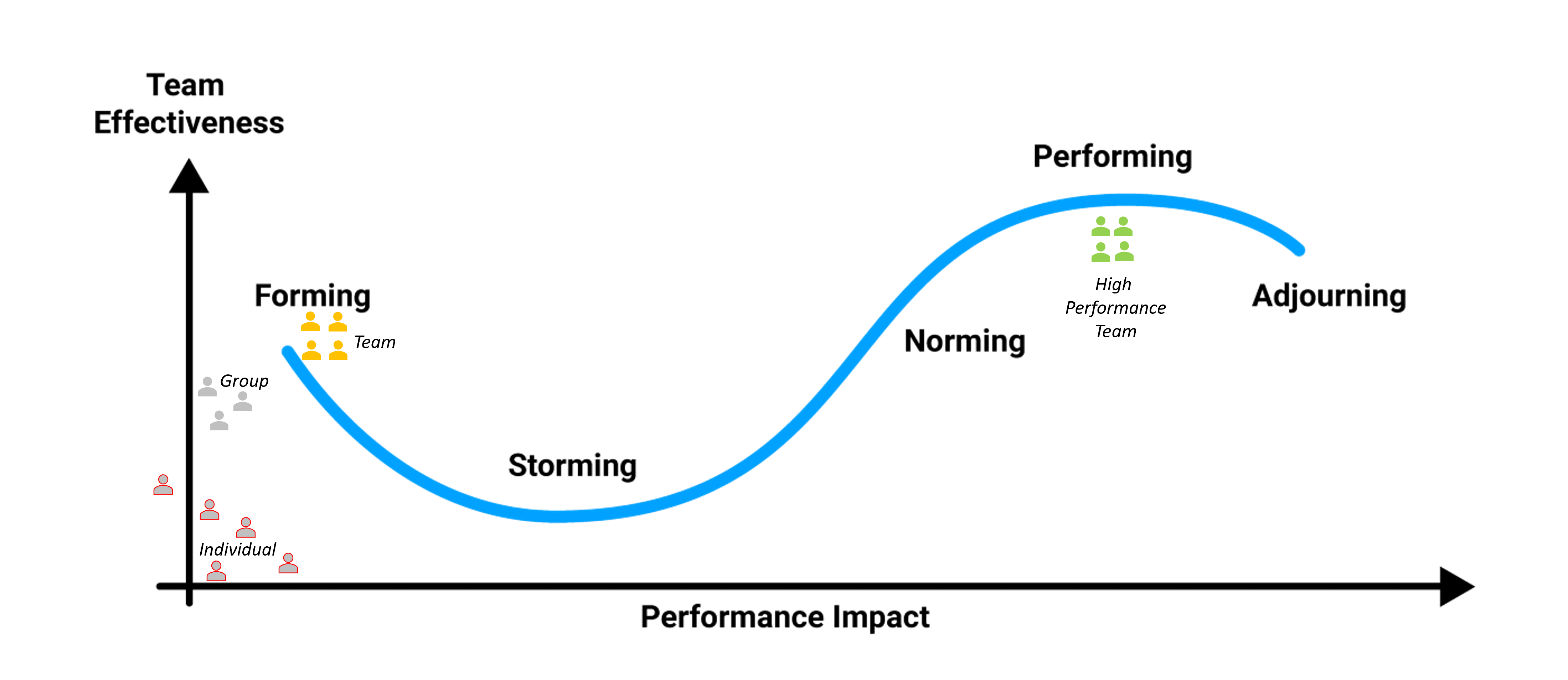
Bruce Tuckman’s Team Development Stages (Tuckman, 1965)
- Forming: Team is established (formed) and meets for the first time, a phase of orientation and getting acquainted.
- Storming: Team is experiencing conflict, tension and competition due to different behaviours and ways of working.
Team performance might decrease during this stage. - Norming: Team conflicts resolved, mutual norms established, more unity, trust and role clarity evolves.
Team performance increases due to better collaboration. - Performing: Team cooperation is well-established, strong team cohesion, now a High Performance Team.
Team performance is at its highest level. - Adjourning: Team accomplishes its tasks and/or is dissolved or re-organized as a Team.
Below is outlined in detail what our Team Building and Team Development are to clarify definitions and distinguish between them for your overview. We are able to switch between the two depending on the purpose and outcome needed for your team and their development stage as a team.
The Team Building and Team Development are based on the safety and professional guidelines by BFTL – The Danish Trade Association for Team Building & Leadership Training. Both are targeted at specific team development stages as above.
The Team Building is based on its specific outcome:
Outcome 1. Where the experiences/activities have the sole purpose to strengthen the social interaction, create motivation and for team members to experience each other in different ways.
Characterised as Team Building to establish and build new cooperation in teams (aimed at teams in the Forming stage).
Is often shorter in duration (e.g. 3-4 hours to a whole Team Day) involving fun, social and motivating activities.
Outcome 2.
Where the exercises are not the outcome in itself, but means to show a behaviour, which can be evaluated and afterwards process developed with the team.
These are Team Development activities involving team process consultancy (aimed at teams in Storming-Performing stages)
Here exercises can be part of the process as means to develop the team towards becoming a high-performing team.
References.
¹Kolb, D. A. (1984) Experiential learning: Experience as the source of learning and development (Vol. 1). Englewood Cliffs, NJ: Prentice-Hall.
²Katzenberg, J. R. and Smith D. K. (1993) The Discipline of Teams (March-April). Havard Business Review.
³Tuckman, B. W. (1965) Developmental sequence in small groups. Psychological Bulletin, 63(6), pp. 384–399.
So, Why choose our Team Building and Team Development?
We offer Team Building and Team Development specifically designed to take place outside in nature as a soothing playground and immersive experiential learning space.
Nature-based activities and/or expedition-style teamwork will create new and unfamiliar contexts that participants have to adapt to and new skills teams need to adopt to become successful as a team. It may drive them into new patterns of action where they learn new habits and working styles.
However, nature-based activities that might involve simple, basic and primitive contexts being outdoors can also build certain routines revolving around expedition-style teamwork (e.g. to pack, navigate, set up camp together, create shelter, build a fire, break camp etc.).
All of that will enable you to experience each other in your team in different ways or the exercises and activities outside in nature can show behaviours or behavioural patterns that can be process developed with your Team to create high transferable organisational or business impact.
Furthermore, our Team Building and Team Development have an added purpose of creating increased interest for the great outdoors, for nature.
So, How does Team Building and Team Development work?
The activities are based on two different framework activities (tailored around your needs), i.e. a 2-Day Team Expedition focused on Team Development and a Team Day of ½-1 Day, which can be either focused on Team Building or Team Development.
We use a development process to ensure transferable value for your team and business or organisation based on 4 phases:
P-D-L-T process:
![]() PLAN: First phase is the main planning and preparation, e.g. the Why, What and How of the development process: Purpose, outcomes and goals of activities are planned and the different aspects needed for preparation are clarified.
PLAN: First phase is the main planning and preparation, e.g. the Why, What and How of the development process: Purpose, outcomes and goals of activities are planned and the different aspects needed for preparation are clarified.
That entails 1 x 60-90 minute sign off and planning meeting with Team Leader and Business Sponsor to agree on:
- WHO: Participants, who does what, roles and responsibilities
- WHAT: Kind of activity, logistics, what to bring, food, water, rent of equipment, expenses for use of location, transportation etc.
- WHERE: Location, venue for activity
- WHY: Purpose of the activity, outcomes and goals to gain from it (e.g. development needs of team)
- HOW: Preparation involves assessing the team development stage (Tuckman) and cohesiveness as a team (Five Behaviors)
- WHEN: Planning of timeline (e.g. 4-6 weeks in advance of activity)
- SAFETY: Consider risks, safety aspects and create planning overview of any injuries or disabilities to ensure inclusion
![]() DO: Second phase is the doing phase, where the activities are conducted, e.g. the execution of the planned development: This involves my facilitation of the exercises while having attention on the individual and team as a whole.
DO: Second phase is the doing phase, where the activities are conducted, e.g. the execution of the planned development: This involves my facilitation of the exercises while having attention on the individual and team as a whole.
Time for the execution of activities and the exercises themselves depends on the team members and whether it is a 2-Day Team Expedition or Team Day of ½-1 Day.
![]()
LEARN: Third phase is continuous learning review and debriefing of activities and what happened: lessons learned, what to improve, what worked well to continuously adapt in the team. Involves evaluation related to future business impact.
![]() TRANSFER: Lastly, the fourth phase is about ensuring transferable organisational or business value through knowledge transfer that can be impactful for your team when you all return to your organisation.
TRANSFER: Lastly, the fourth phase is about ensuring transferable organisational or business value through knowledge transfer that can be impactful for your team when you all return to your organisation.
This entails implementing knowledge and learnings from activities and the actions agreed upon.
Those post-activity actions can be complemented by:
1) Team Coaching in corporation or organisation after activity
2) ½-1 Day of “shadowing” of team and Team Leader in own organisation
3) Testing and evaluation of the learnings from activities in own daily context
Preparation, purpose & goals
Conduct activity
Debriefing & Review
Knowledge transfer for business impact
Team Expedition → 2 Days
Our Team Expeditions are based on practical experiential learning outdoors in nature. Focus is on how to grow very effective and high-performing teams, e.g. building trust, better collaboration, communication, feedback and reflection (aimed at teams in Storming-Performing stages).
Target group: Team Expeditions are valuable for varied target groups such as leadership teams, agile teams, project teams or sports teams.
Location: Expeditions take place outside in nature. Location is in Denmark and depends on agreed content aligned with your needs for the team.
Participants: Max of 10 team members – typical group sizes vary between 8-10.
Duration: 2 Days / 32 hours (e.g. from Friday at 08.00 am ending Saturday at 04.00 pm).
Investment: Our Team Expeditions are tailored around your needs — contact me for pricing.
Team Day → ½-1 Day
Our Team Days are based on a ½ or 1 Day framework of practical experiential learning outdoors in nature. Focus is on shorter duration and motivational Team Building activities to socialize, have fun and establish and build new and better cooperation in teams (aimed at teams in the Forming stage).
Target Group: Team Days outside in Nature can be valuable for varied target groups such as newly established leadership teams, agile teams, project teams or sports teams.
Location: Team Days take place outside in nature. Location is in Denmark and depends on agreed content aligned with your needs for the team.
Participants: Max of 20 team members – typical group sizes are 15-20.
Duration: ½-1 Day / 4-8 hours (e.g. from 10.00 am to 2.00 pm or 08.00 am to 04.00 pm).
Investment: Our Team Days are tailored around your needs — contact me for pricing.
Everything Motivational.
Better Lives. Leaders. Teams.
Contact Christian
LET'S BEGIN WITH A CONVERSATION
You most likely landed on this page because you are a leader, part of a team or a professional who seek guidance on your coaching and development options.
Your first step on this journey is to begin a conversation where we talk about your challenges, aspirations, dreams, goals, outcomes and what to expect.
When we work together it’s a genuine partnership. A safe space and collaboration to reach your true potential and personal and professional success and fulfilment. I’m here to partner with you every step of the way.
Ready to start your transformational journey? Let’s connect and start the conversation.
